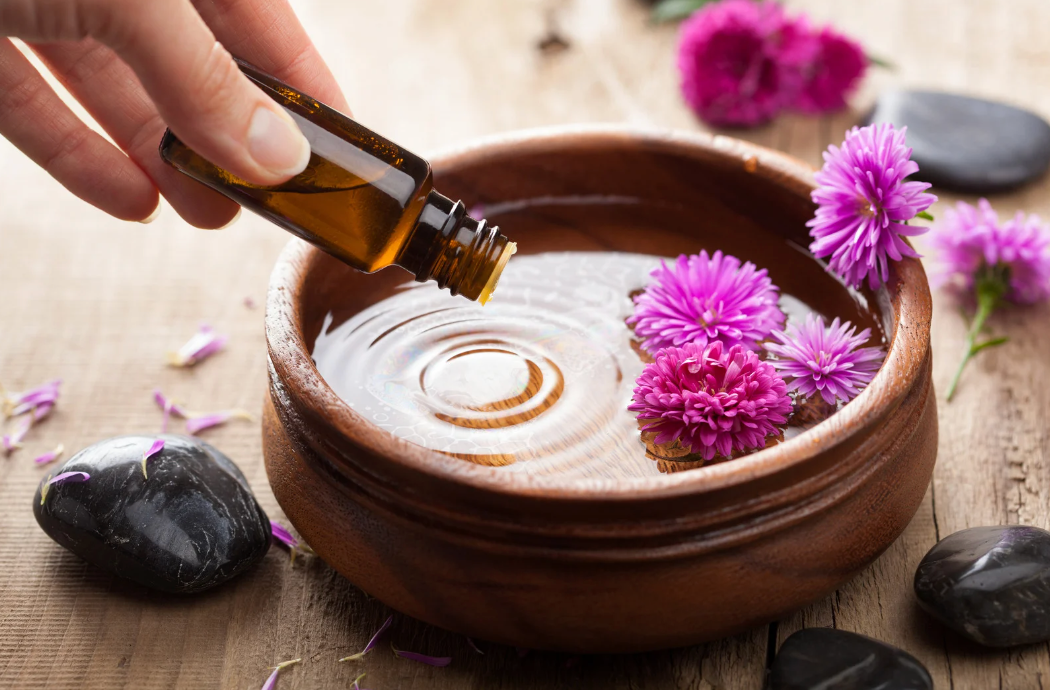Article: Essential Oils for Beginners: A Holistic Guide to Aromatherapy

Essential Oils for Beginners: A Holistic Guide to Aromatherapy
Essential oils have been used for centuries as natural remedies to promote physical, emotional, and spiritual well-being. These concentrated plant extracts capture the essence of their source, offering potent therapeutic benefits. Whether you’re new to essential oils or simply curious about their potential, this guide provides an introduction to their history, uses, and how you can start incorporating them into your daily routine.
A Brief History of Essential Oils
The use of essential oils dates back thousands of years. Ancient civilisations like the Egyptians, Greeks, and Romans used oils in religious rituals, medicinal practices, and cosmetics. For instance, frankincense and myrrh were highly valued for their healing and spiritual properties. In traditional Chinese and Ayurvedic medicine, essential oils have been integral to holistic healing practices, believed to balance the body’s energy and treat various ailments. Today, essential oils are widely used in aromatherapy, a holistic healing practice that uses the power of scent to improve mental, emotional, and physical health.
How Essential Oils Work
Essential oils can be used in several ways: diffused into the air, applied topically (always diluted with a carrier oil), or added to baths and homemade skincare products. Inhalation is one of the most common methods, as the aroma of essential oils can stimulate the limbic system in the brain, which controls emotions and influences the nervous system. This is why certain oils can help reduce stress, improve mood, or even boost energy levels.
Carrier Oils: The Basics
Carrier oils are used to dilute essential oils before they are applied to the skin. Since essential oils are highly concentrated, applying them directly can cause irritation or allergic reactions. Carrier oils, such as coconut oil, jojoba oil, and sweet almond oil, are neutral and nourishing, making them ideal for blending with essential oils. They ensure safe application and enhance the absorption of essential oils into the skin.
Five Most Common Essential Oils and Their Benefits
-
Lavender: One of the most versatile essential oils, lavender is known for its calming and relaxing properties. It’s commonly used to reduce stress, improve sleep, and soothe skin irritations.
-
Peppermint: This invigorating oil is excellent for boosting energy and mental clarity. It’s also effective for relieving headaches, muscle pain, and digestive issues.
-
Tea Tree: Renowned for its antiseptic and antibacterial properties, tea tree oil is often used to treat acne, cuts, and fungal infections. It’s a powerful natural remedy for skin care.
-
Eucalyptus: Eucalyptus oil is commonly used for respiratory issues. Its anti-inflammatory and decongestant properties make it a go-to for colds, sinusitis, and allergies.
-
Lemon: With its fresh, uplifting scent, lemon oil is great for boosting mood and energy. It’s also a natural cleanser, perfect for purifying the air and detoxifying the body.
Starting Your Essential Oil Journey
As you begin exploring essential oils, start with these common oils to experience their wide-ranging benefits. Remember, always dilute essential oils with a carrier oil before applying them to your skin, and do a patch test to ensure you don’t have an allergic reaction. While essential oils can be powerful tools for wellness, it’s important to use them safely and responsibly. With a little knowledge and care, you can enjoy the many benefits that essential oils have to offer.
By integrating essential oils into your daily routine, you can enhance your well-being naturally and holistically, just as countless cultures have done throughout history.
Read more

Holistic Approaches to Managing High Blood Pressure
High blood pressure, also known as hypertension, is a common yet serious condition that can lead to heart disease, stroke, and other health complications if left unchecked. While conventional medi...
Read more
